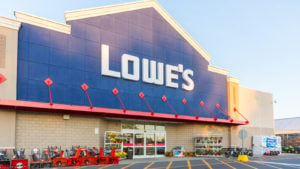The novel coronavirus pandemic has completely upended the markets and changed the nature of investing. But what is also true is that there are several domains where market movements have surprised us. One sector, which should be going south but isn’t, is real estate. The housing market is red hot at the moment, mainly due to the shortage in supply. That means certain real estate stocks are excellent bets. Despite the conventional wisdom that they would perform badly due to recessionary pressure.
But why is that so? With consumer discretionary incomes taking a pounding, shouldn’t housing demand be at an all-time low? Well, it’s a bit more complicated than that.
Due to the pandemic, there are fewer and fewer houses available on the market. The reduced inventory is pushing the price of homes upward. And even though September showed U.S. new home starts rose 1.9% to a 1.42 million annualized rate from a month earlier, that’s still not enough to guarantee prices going down soon. Interest rates are also at historic lows, and with many people stuck at home, you can understand why Americans are taking an extra interest in purchasing a house.
So, without further ado, here are five real estate stocks that you can buy to play this hot housing market:
- D.R. Horton (NYSE:DHI)
- Alexandria Real Estate Equities (NYSE:ARE)
- Invitation Homes (NYSE:INVH)
- Lowe’s Cos. (NYSE:LOW)
- Tractor Supply Co. (NASDAQ:TSCO)
Real Estate Stocks: D.R. Horton (DHI)

We start with perhaps the safest bet in the sector. D.R. Horton is the largest U.S. public homebuilder. Despite being an industry leader, DHI stock is trading at 11.45 times forward price-earnings when the sector trades at 19.58 times. As millennials look to buy houses for the first time in their lives, DHI is in a firm position to take advantage of the situation. Any Covid-19 related headwinds should slow down the company for just a few quarters.
But the long-term growth story for the company remains intact. I also like the company’s capital management. It has used the bulk of its positive operating cash flow to build up its inventory, an astute policy, considering the supply shortage the industry is currently facing.
In addition, the company is distributing a dividend that has continuously increased from 2014 onward. Although the dividend yield remains small, I appreciate a company that maintains a decent dividend payout ratio over time.
Alexandria Real Estate Equities (ARE)

Bit of a curveball here since the next entrant on the list of real estate stocks to buy is a real estate investment trust, or REIT, that invests in office buildings and laboratories leased to tenants in the life science and technology industries. Considering the remote working trends, it’s surprising that the company is holding its own. Occupancy rates and rent collection have remained steady due to its high-quality life sciences properties, with a 99.5% collection rate during the latest quarter.
In many ways, ARE has flipped the script.
The pandemic, which has wreaked several of its healthcare REIT peers, has actually been a boon for the company. This is because its tenants are working actively to develop vaccines and new testing methods, including but not limited to Moderna (NASDAQ:MRNA), Pfizer (NYSE:PFE), Johnson & Johnson (NYSE:JNJ), and Abbott Laboratories (NYSE:ABT).
With several tenants part of the solution rather than the problem, ARE is in a prime position to grow moving forward.
Invitation Homes (INVH)

Invitation Homes is the biggest owner of single-family rental homes in the United States, owning around 80,000 homes for lease in 16 markets. The company possesses an excellent portfolio with several properties close to urban centers, providing excellent access to jobs and school.
The company’s focus on single-family homes is both an Achilles’ heel and a unique selling point. With office or retail REITs, you usually have institutional tenants to rely on for a steady income stream. In comparison, residential REITs have several thousand tenants, which can be hard to track and manage. That’s why operational costs are high for this kind of REIT.
On the flip side, demographic trends are in its favor. As millennials enter their prime home-buying age, they are looking to purchase properties in the suburbs rather than the dense urban areas. That has a lot to do with the pandemic. More employees are working from home than ever before. As a result, it really doesn’t matter if you live in the city or outside. That provides an excellent tailwind for single-family homes that the company can serve.
Lowe’s Cos. (LOW)

The chances are that if you have ever done work around your house, you’ve visited either Lowe’s or a Home Depot (NYSE:HD). Both are excellent stocks to have in your portfolio, but LOW is a better bargain, in my opinion. The stock trades at 18.45 times forward P/E, a sizeable discount to Home Depot shares, trading at 23.36 times.
Due to the nature of the pandemic, people are spending more on home improvement, a trend that will continue till at least 2021. That is reflected in a 30% top-line increase in Q2. The biggest bright spot? Revenue is made up almost entirely of store sales rather than online purchases. Even the biggest retail names find it difficult to increase footfall in their stores, so LOW definitely deserves some brownie points here. Cost control is also excellent, with net income coming in at $3.96 billion from $2.38 billion last year.
LOW stock remains at a 13% discount to its 52-week high. Plus, analyst estimates indicate that the stock’s 12-month consensus estimate is $185 a pop, a 17.0% premium to its current share price. The best part is that the stock doesn’t usually come up under the usual suspects of hot real estate stocks to buy.
Tractor Supply Co. (TSCO)

Not a pure-play real estate stock like several other companies on this list, but Tractor Supply has a lot going for it right now. Part of that has to do with the argument we’ve made in other parts of this article; people are moving to the suburbs and rural areas, away from city centers. As a result, they require different sets of tools to navigate their lives, many of which Tractor Supply provides.
And while most U.S. citizens live in cities, roughly 19.3% still live in rural areas. They will continue to require products that the company sells, including but not limited to, pet food and livestock feed. The only thing that the stock has against it is its premium valuation, as it trades at 19.92 times forward P/E. But I guess that people are flocking to it because of the stability that it offers. Not a bad idea, if you chose to do the same.
On the date of publication, Faizan Farooque did not have (either directly or indirectly) any positions in the securities mentioned in this article.
Faizan Farooque is a contributing author for InvestorPlace.com and numerous other financial sites. He has several years of experience analyzing the stock market and was a former data journalist at S&P Global Market Intelligence. His passion is to help the average investor make more informed decisions regarding their portfolio.
